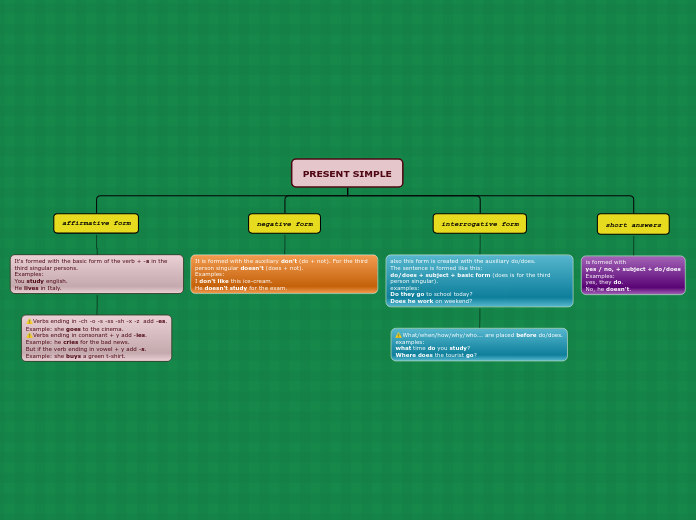
It's formed with the basic form of the verb + -s in the third singular persons.
Examples:
You study english.
He lives in Italy.
⚠️Verbs ending in -ch -o -s -ss -sh -x -z add -es.
Example: she goes to the cinema.
⚠️Verbs ending in consonant + y add -ies.
Example: he cries for the bad news.
But if the verb ending in vowel + y add -s.
Example: she buys a green t-shirt.
It is formed with the auxiliary don't (do + not). For the third person singular doesn't (does + not).
Examples:
I don't like this ice-cream.
He doesn't study for the exam.
also this form is created with the auxiliary do/does.
The sentence is formed like this:
do/does + subject + basic form (does is for the third person singular).
examples:
Do they go to school today?
Does he work on weekend?
⚠️What/when/how/why/who... are placed before do/does.
examples:
what time do you study?
Where does the tourist go?
is formed with
yes / no, + subject + do/does
Examples:
yes, they do.
No, he doesn't.